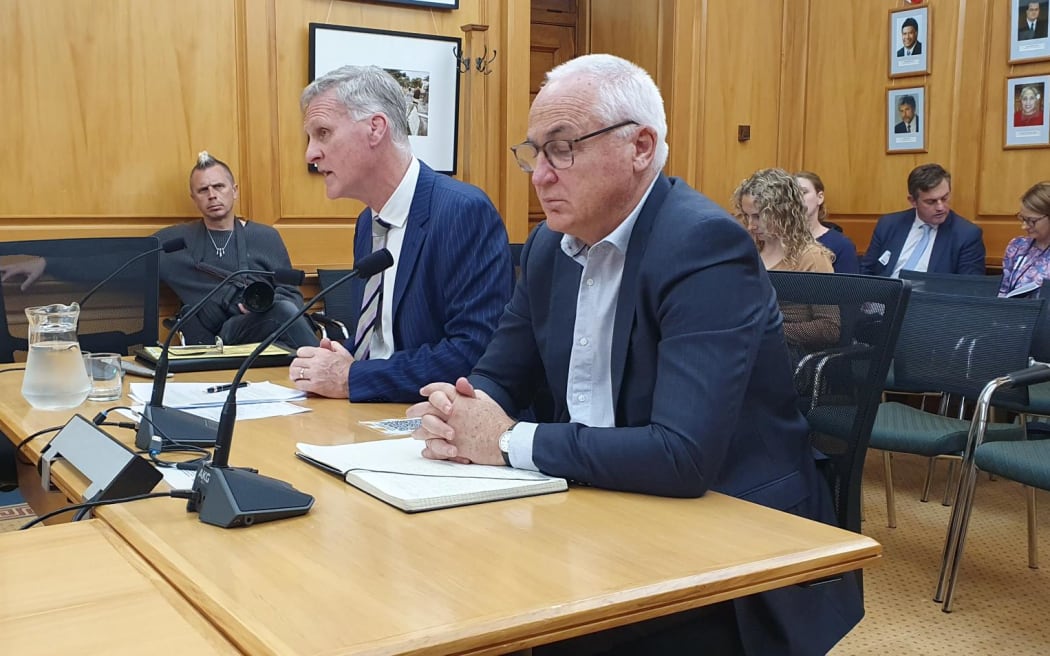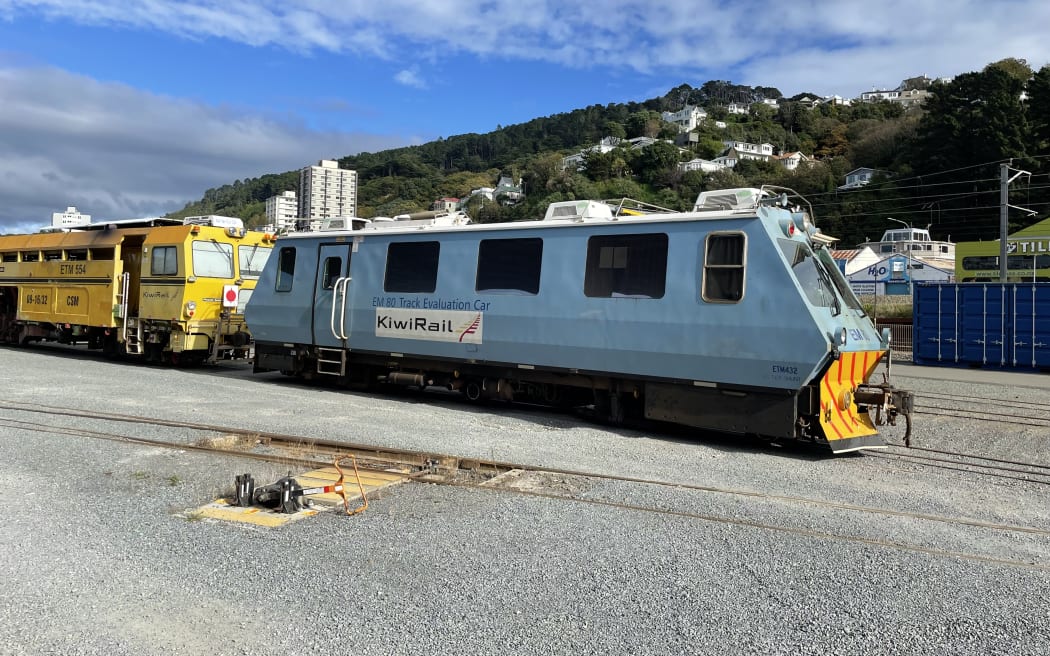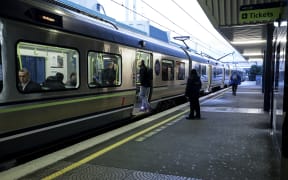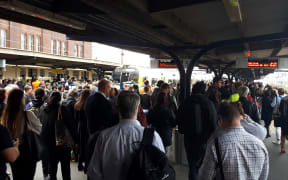
KiwiRail's Peter Reidy, left, and David Gordon discuss Wellington's commuter train failures, at a select committee hearing. Photo: RNZ / Phil Pennington
KiwiRail admits it had opportunities to avoid the chaos with trains in Wellington this week but missed them.
Its chief executive, chairperson and the chief of assets apologised to MPs for the failures at a parliamentary select committee this morning.
Passengers faced mass disruption as only half the train services ran for three days, after a failure of maintenance scheduling was compounded by KiwiRail's only high-tech track evaluation machine breaking down.
"We let the people of Wellington down this week," chairperson David McLean told MPs.
Early investigations showed the breakdown of the EM80 machine was only the straw that broke the camel's back, forcing trains to run slow, services to be slashed and capital commuters to jam up motorways with their cars instead.
"The primary mistake was that the EM80 ... should have been scheduled to do its track evaluations well before the compliance period ended on 30th April," McLean said.
Without an evaluation, KiwiRail was obligated to bring in 70kmh speed restrictions.
"For reasons we don't yet fully know, the EM80 was scheduled to do the track assessment in May, that's after the end of the compliance period, instead of much earlier."
The maintenance scheduling error was unacceptable, and the external inquiry begun this week and due to report back by 12 May aimed to get to the bottom of why this happened, he said.
This basic mistake was compounded when KiwiRail realised last week the EM80 needed a wheel taking off and fixing.
Chief executive Peter Reidy said it was a serious "own goal" and they needed to understand why two opportunities to evaluate the tracks earlier were missed, and "why it came right down to where we had no buffer zone".
But he added that KiwiRail's assurance and audit processes were first-class, and the failures were not a safety issue.
Once the alarm was raised on 26 April, KiwiRail rushed to do this after the executive team learned of the crisis the same day and to accelerate doing the track checks around Wellington, avoiding what was originally signalled might be a month of disruptions, the executives told MPs.
Use of just one machine never a problem before
Reidy defended having just one specialised track checking machine for the whole country, noting this was the first problem in 41 years.
The EM80 was used three times a year in Wellington, four in Auckland, and around the country other times.
"One piece of equipment is adequate to cover the workload in New Zealand," he said outside the select committee.
"Our view is we don't think taxpayers of New Zealand would want us investing 20 million [dollars] in a plant that wasn't being used."

KiwiRail's Track Evaluation Car. Photo: KiwiRail
A new track-evaluator is not due to be on hand till 2026-27, after a six-month-long tender process to supply one ended in January this year.
The old one would be kept as a backup, MPs heard.
Meanwhile, KiwiRail was unable to lease a second machine from Australia or elsewhere because local tracks were a different gauge, Reidy said.
The manufacturer of the EM80, Plasser & Theurer, has made 17,000 of the machines over the decades, its website shows. The company did not respond to RNZ's request for comment.
McLean said it would be key to change how the EM80's work was scheduled so "unforeseen issues can be managed".
Reidy said the inquiry was interviewing 10-to-15 people now, asking was there a handover issue, to alert managers to the problem.
"Was there a gap in our scheduling system? There obviously was.
"This is the first time in Wellington this has happened. We need to understand why, 'cause it's serious."
Asset head David Gordon said they were talking to Australia's train operators about how to make track maintenance more dynamic and less disruptive to passengers, which was vital for Auckland's passenger rail expansion.
Reidy said KiwiRail had very good relations with Auckland Transport, and had "dramatically" improved relations with Wellington operator Metlink.
Metlink made the calls about what train services ran and when, and did not take up a KiwiRail offer to help with marshalling passengers during the Monday-to-Wednesday crush, he said.






